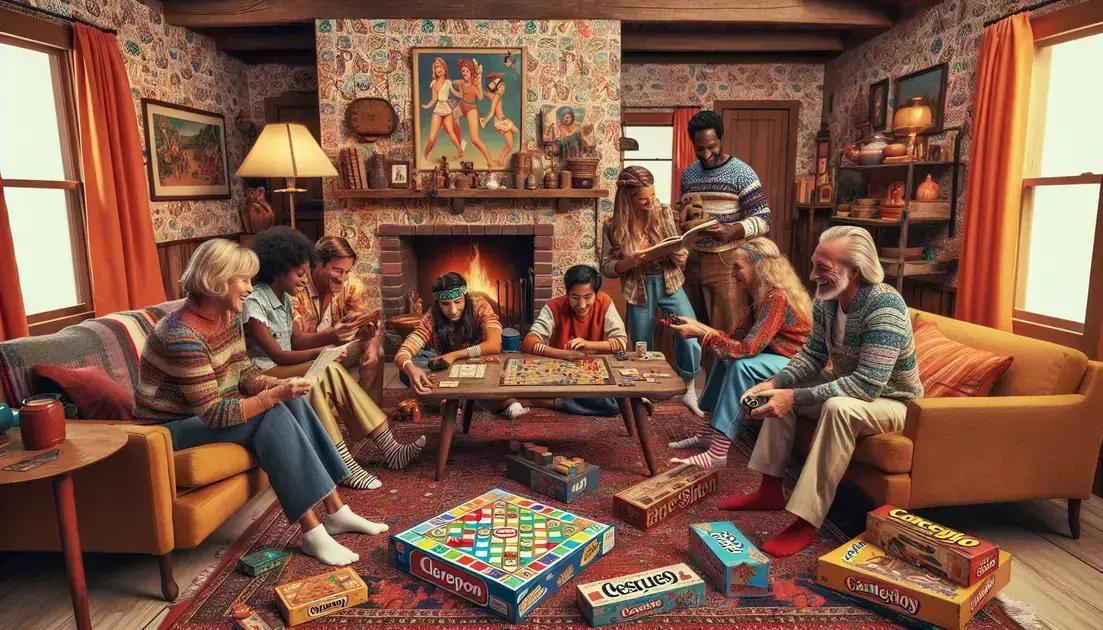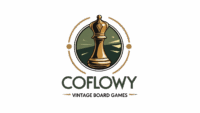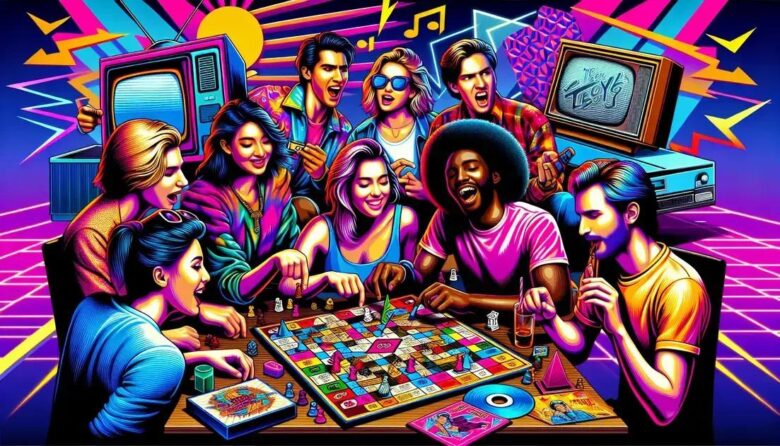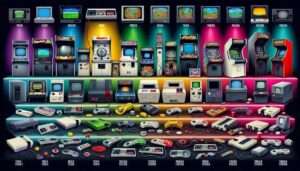80s pop culture board games reflected iconic movies, TV shows, and music of the decade through vibrant designs and engaging gameplay, fostering social connections and nostalgia that keep them popular collectors’ items today.
80s pop culture board games bring back a vivid slice of that colorful decade. Ever wondered how your favorite movies, TV shows, and music shaped games you played as a kid? Let’s dive into some of the coolest games that became cultural icons, reminding us why the 80s still spark joy and nostalgia.
the rise of licensed board games in the 80s
During the 1980s, the board game industry experienced a significant boom with the rise of licensed games based on popular movies, TV shows, and music icons. This period saw classic franchises obtaining official board game adaptations that allowed fans to immerse themselves directly in their favorite worlds. Licensed board games became a bridge between pop culture and family entertainment, making them popular gifts and collectibles.
What fueled this rise?
Mass media expansion and the explosion of cable TV introduced audiences to more characters and stories than ever before. Game manufacturers quickly acquired licenses to create engaging gameplay experiences around these beloved franchises. For instance, games based on blockbuster movies like Ghostbusters and Back to the Future became household names.
The impact on game design
Developers incorporated recognizable characters, themes, and soundtracks into game mechanics and artwork, providing immersive and relatable experiences. This era also saw new marketing strategies that targeted children and teens eager to connect with trends in music, television, and film.
Overall, the rise of licensed board games in the 80s helped shape an exciting era where entertainment mediums combined, enriching family time with nostalgic and culturally relevant gameplay.
iconic 80s pop culture themes in board games
Many board games in the 1980s captured iconic pop culture themes that defined the decade. From sci-fi adventures and fantasy realms to famous TV shows and music stars, these games brought popular stories and characters right onto the gaming table. They allowed players to live out adventures inspired by what they watched and loved.
Science fiction and fantasy
Games often featured space exploration, futuristic technology, or magical quests. Titles inspired by franchises like Star Wars and Dungeons & Dragons dominated, encouraging imagination and strategic play.
Television and movies
Board games based on popular shows such as Transformers or Miami Vice let fans dive deeper into their favorite storylines. These games often used familiar characters and plot elements to engage players.
Music and pop icons
Some games featured rock bands or music trends, reflecting the vibrant culture of the 80s. This helped create a diverse range of game themes that appealed to different age groups and interests.
Overall, the use of 80s pop culture themes in board games made them more than just entertainment; they became cultural artifacts that connected players to the era’s unique spirit.
how movies and tv shows shaped board game trends
Movies and TV shows in the 1980s had a huge influence on board game trends, shaping both themes and gameplay styles. Popular entertainment created characters and storylines that game makers eagerly adapted, blending visual storytelling with interactive fun.
Cross-media influence
Board games drew inspiration directly from successful movies and TV series, creating immersive experiences that mirrored what audiences loved on screen. For example, the hit film Back to the Future inspired games that put players in time-travel adventures, while shows like Stranger Things captured a similar spirit in later decades.
Character-driven gameplay
Using well-known characters allowed games to include unique abilities and roles, adding depth and making the experience more engaging. Players enjoyed stepping into the shoes of their favorite heroes or villains, which increased the game’s appeal.
Marketing and cultural impact
Licensing board games from TV and movies created strong connections between fans and the games, driving sales and creating collectibles. These games often featured distinctive artwork and recognizable music themes to boost authenticity.
Movies and TV shows not only brought fresh ideas but also helped shift board games into mainstream pop culture by linking them to familiar stories and characters that people loved.
nostalgia and the lasting appeal of classic 80s games

Classic 80s board games hold a special place in the hearts of many due to their strong sense of nostalgia. These games remind players of simpler times filled with family, friends, and shared fun. The lasting appeal comes from unique designs, memorable themes, and the joy of unplugged social interaction.
Emotional connection
Many players grew up with these games, creating memories that are cherished for life. Revisiting these games often sparks warm feelings and a desire to reconnect with loved ones.
Timeless gameplay
Despite technological advances, classic 80s games offer engaging mechanics that withstand the test of time. Their challenging yet accessible play keeps players coming back, whether for friendly competition or cooperative fun.
Collectibility and cultural value
Original editions have become prized collectibles, sometimes gaining value over the years. They also act as cultural artifacts, preserving the artistic style and social trends of the 80s.
The nostalgia and enduring charm of 80s board games keep them popular, ensuring they remain relevant in both gaming and pop culture communities today.
design and artwork reflecting 80s culture
The design and artwork of 80s board games are instantly recognizable thanks to their bold colors, geometric shapes, and neon accents. This style perfectly mirrored several key cultural trends of the decade, including the rise of synth music, arcade games, and pop art. The visual appeal of these games drew players in even before they opened the box.
Bold colors and graphics
Neon pinks, greens, and blues were common, reflecting the vibrant energy of the era. These colors made game boxes and boards stand out on shelves, enticing buyers with a promise of fun and excitement. The artwork often featured dynamic illustrations that captured the spirit of the times.
Pop art and graphic influences
Many games showcased pop art elements, such as comic-style drawings, exaggerated characters, and striking patterns. This connected board games with wider art movements and media like MTV and comic books, which were hugely popular during the 80s.
Iconic 80s symbolism
Designs frequently included symbols like boomboxes, roller skates, pixelated graphics, and cassette tapes. These elements helped set the games in the cultural landscape of the decade and enhanced the player’s nostalgic experience.
The distinctive design and artwork of 80s board games remain a lasting hallmark, adding to their charm and collectible value for fans and newcomers alike.
collecting and valuing vintage 80s board games
Collecting vintage 80s board games has become a popular hobby as enthusiasts seek to preserve a piece of pop culture history. These games serve as nostalgic artifacts that remind players of their childhoods and the vibrant era they represent.
Factors that affect value
The condition of the game is crucial; unopened or complete sets with original packaging usually fetch higher prices. Rarity and demand also play major roles. Limited editions or games tied to popular franchises often become valuable collectibles.
Where collectors find these games
Many look for vintage board games at thrift stores, estate sales, or online marketplaces. Auctions and collector conventions provide opportunities to acquire rare items and connect with other fans.
Caring for vintage games
Proper storage and handling are essential to maintain a game’s value. Keeping boxes dry, protecting components, and avoiding direct sunlight helps preserve colors and materials over time.
Collecting vintage 80s board games is not only about monetary value but also about celebrating the rich cultural impact these games had and continue to have.
games that sparked social connections and family time
Games from the 80s played a key role in bringing people together, sparking social connections and creating cherished family moments. These board games encouraged interaction and teamwork, making them perfect for bonding across generations.
Facilitating conversation and laughter
Many 80s games focused on simple rules that were easy to learn, allowing players to quickly join in and chat. This made game night fun and inclusive for families and friends alike.
Encouraging teamwork and friendly competition
Some games required players to cooperate to reach a common goal, strengthening social ties. Others fostered friendly rivalry that kept players engaged and coming back for more.
Building traditions and memories
Regular gameplay sessions often turned into lasting traditions. Families and groups formed memories around these games, making them more than just entertainment but also an important part of social life.
These qualities made 80s board games a staple for social gatherings, contributing to their lasting popularity and cultural significance.
Why 80s pop culture board games still matter today
Board games from the 1980s captured the spirit of a unique decade filled with creativity and memorable stories. They brought people together, creating fun experiences that went beyond just playing.
Their iconic designs, themes, and social value have made these games timeless favorites. Whether you’re a longtime fan or new to the scene, 80s board games offer a nostalgic and engaging way to connect with the past and enjoy quality time with others.
Exploring these games is a great way to relive history and make new memories.




